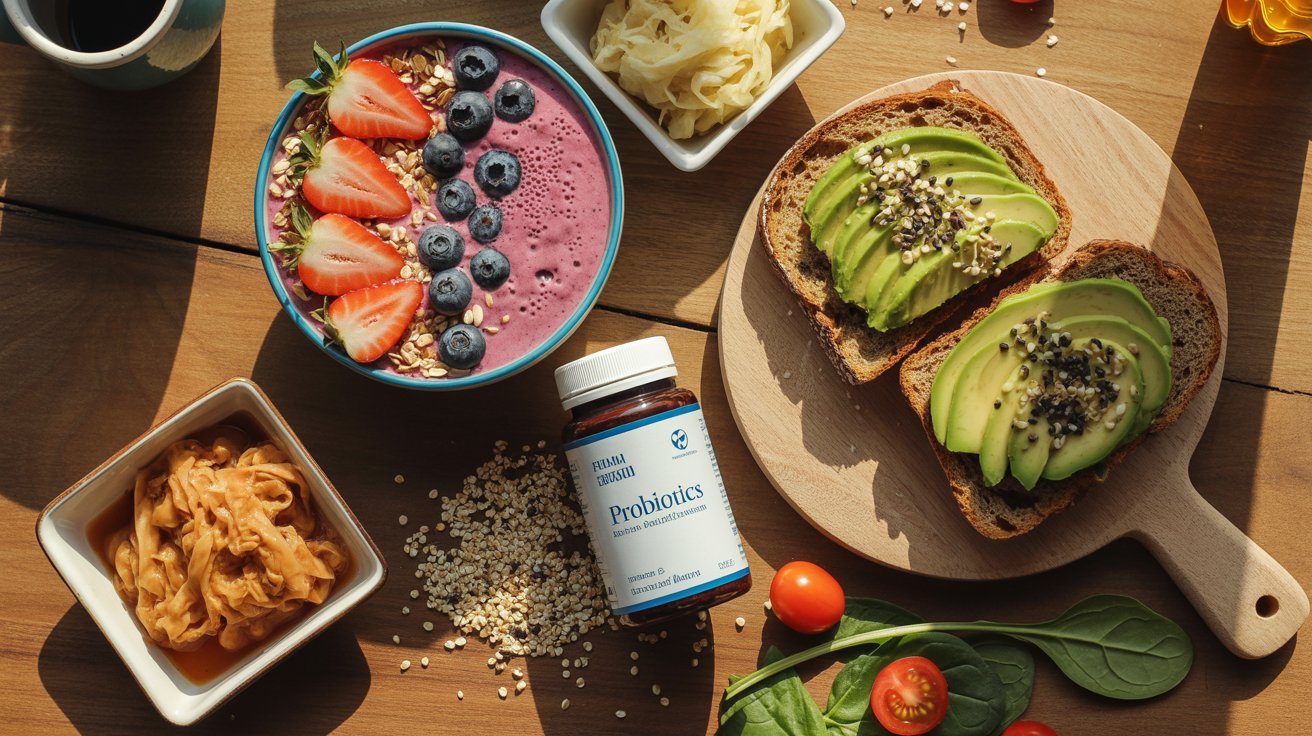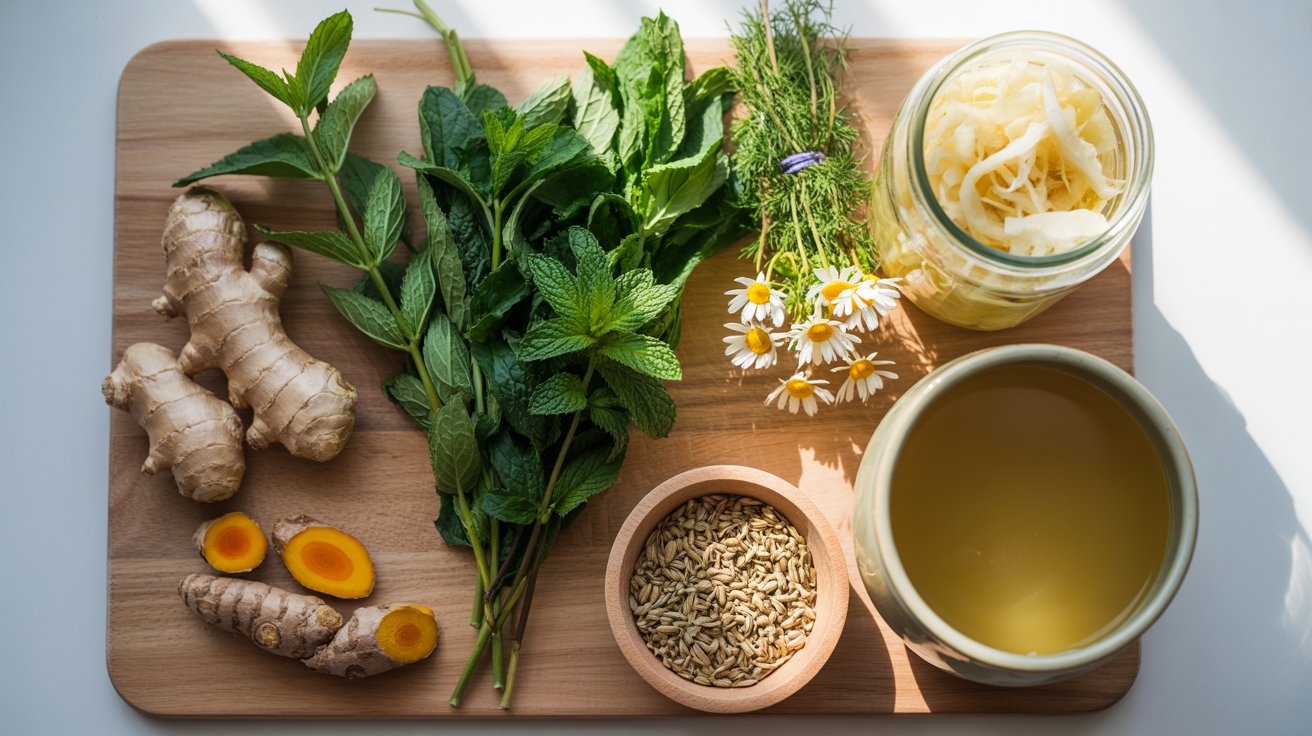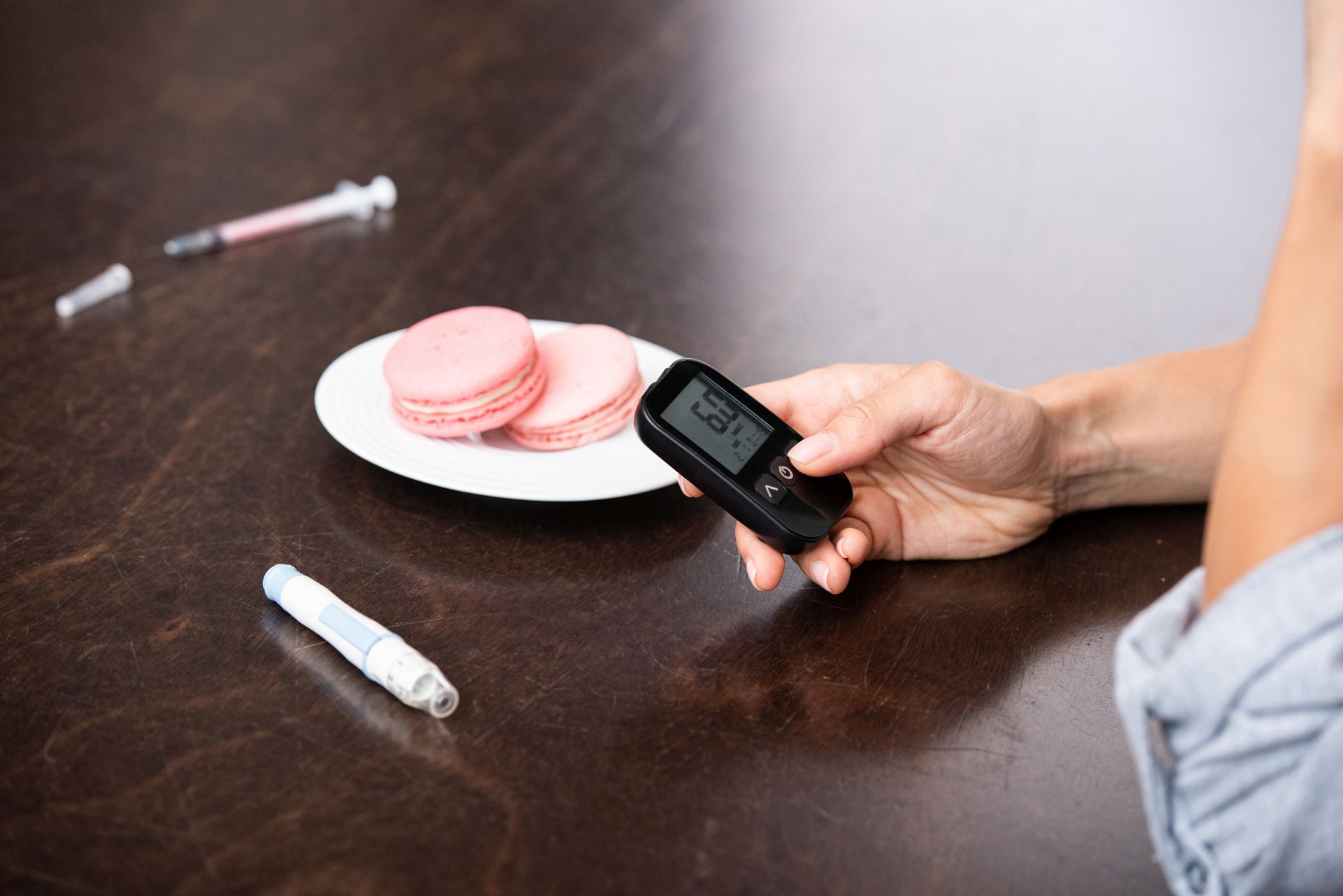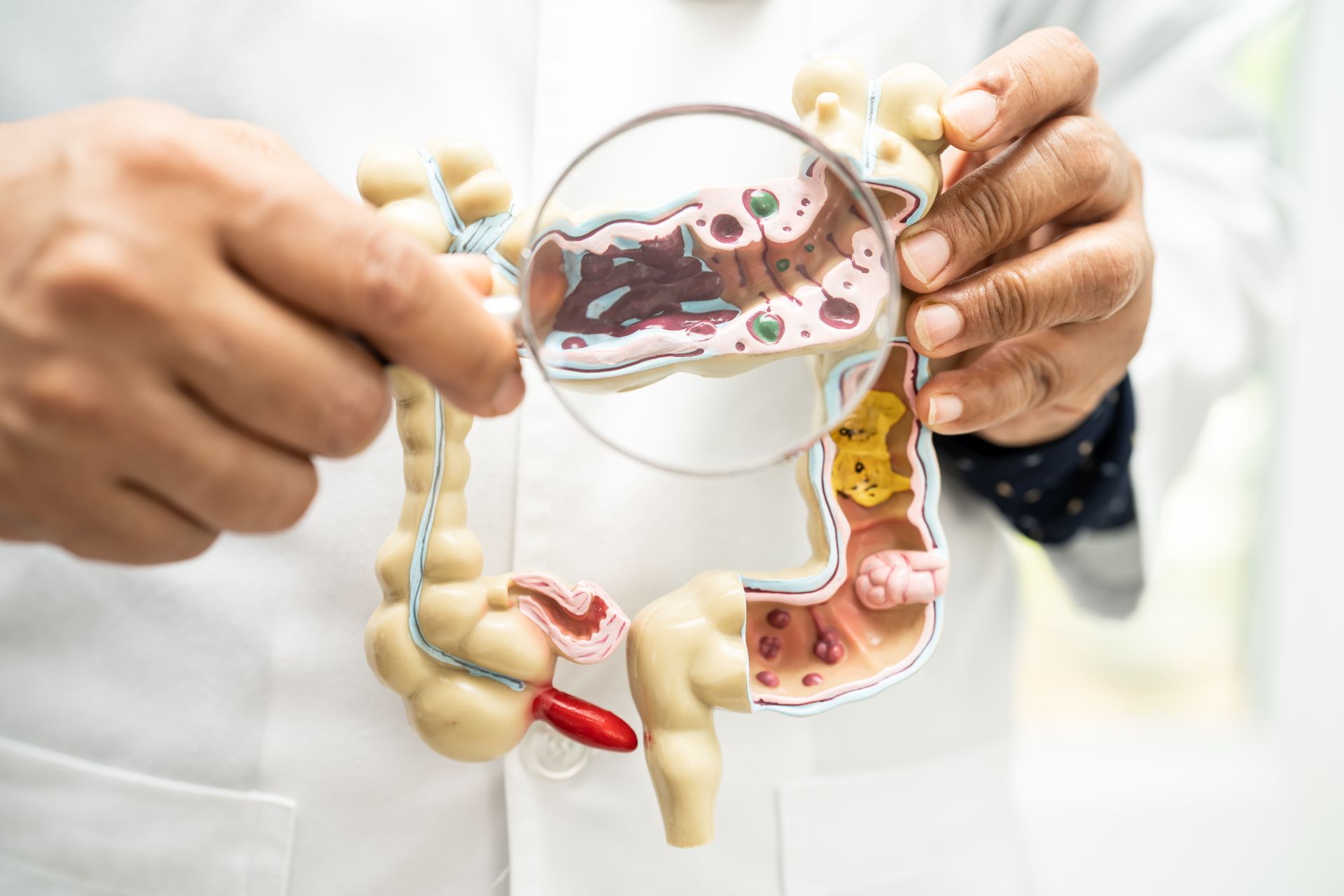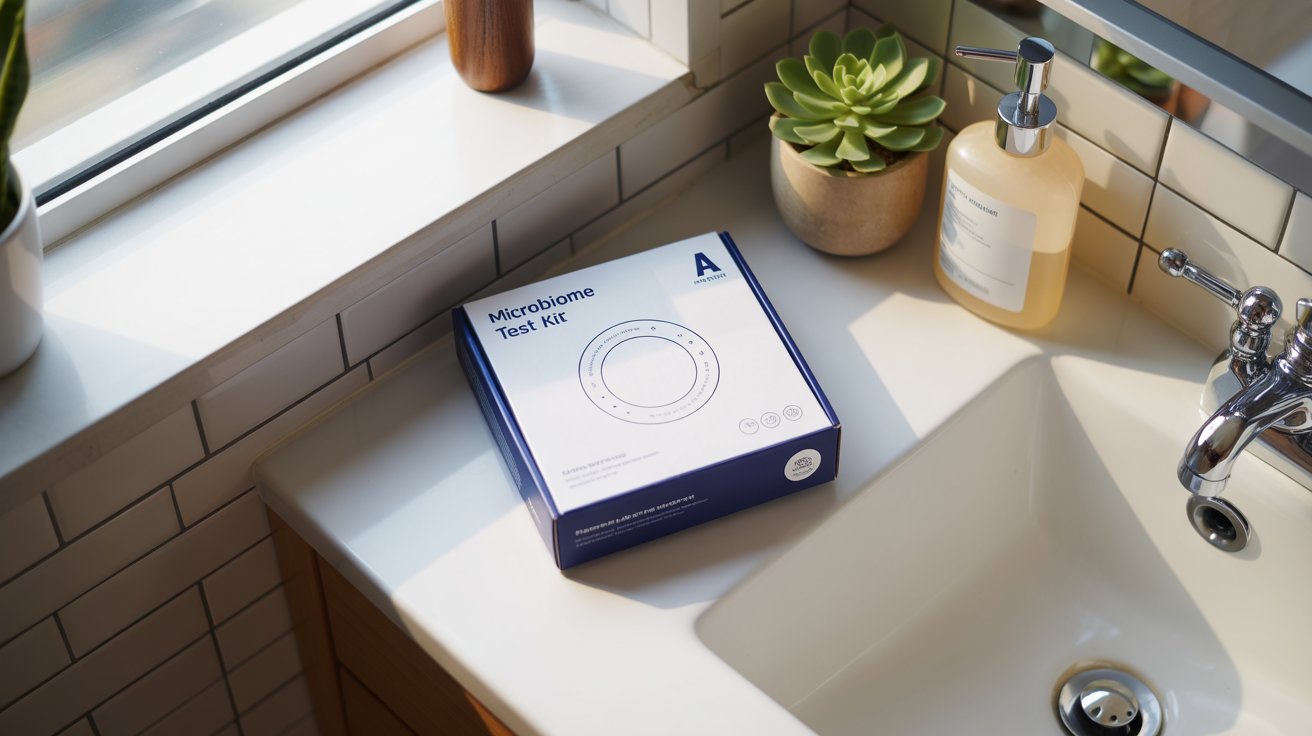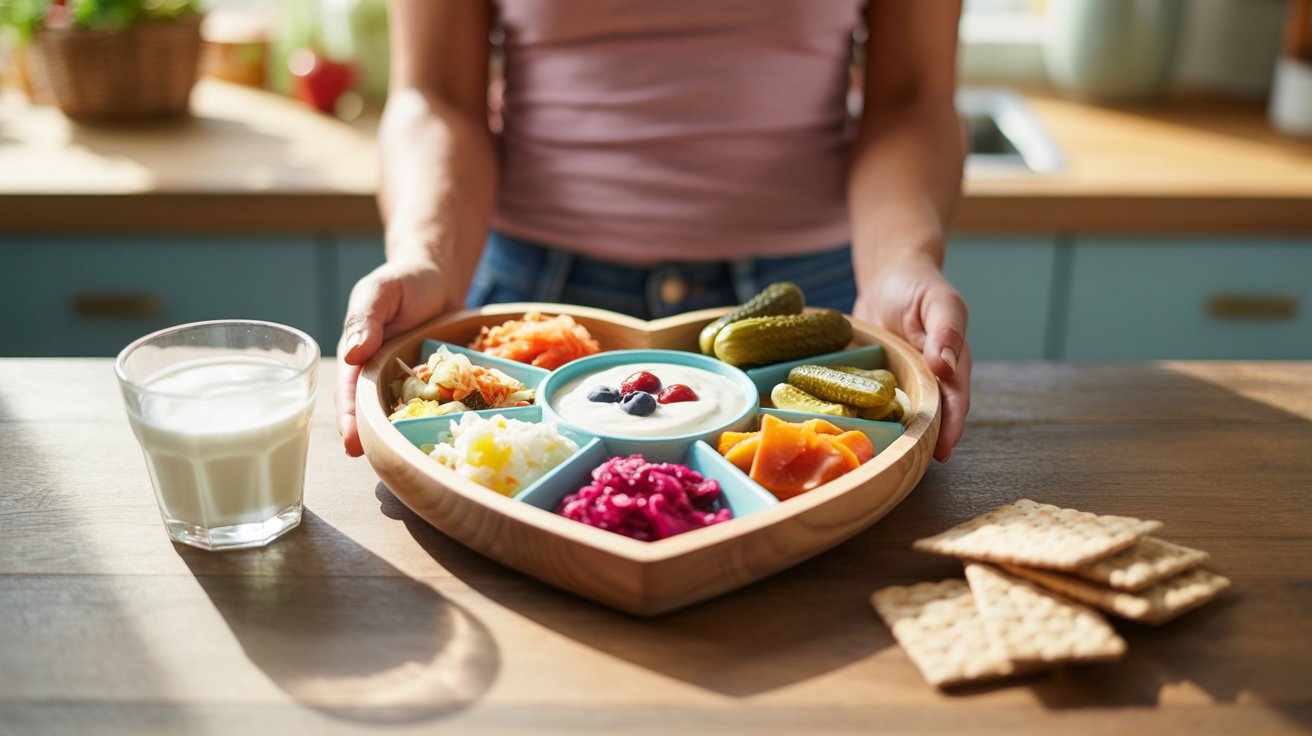You know that feeling after you’ve had just a bit too much dessert—your stomach’s a little puffy, your energy crashes, and your brain’s in a fog? That’s not just a sugar rush followed by a crash. It’s your gut trying to tell you something. The relationship between sugar and gut health is more important than most people realize, and the effects can ripple far beyond your digestion.
This post breaks it all down: what sugar does to your microbiome, how to spot the signs it’s messing with you, and what small shifts can help you feel better without cutting out every cookie.
What Sugar Actually Does to Your Gut
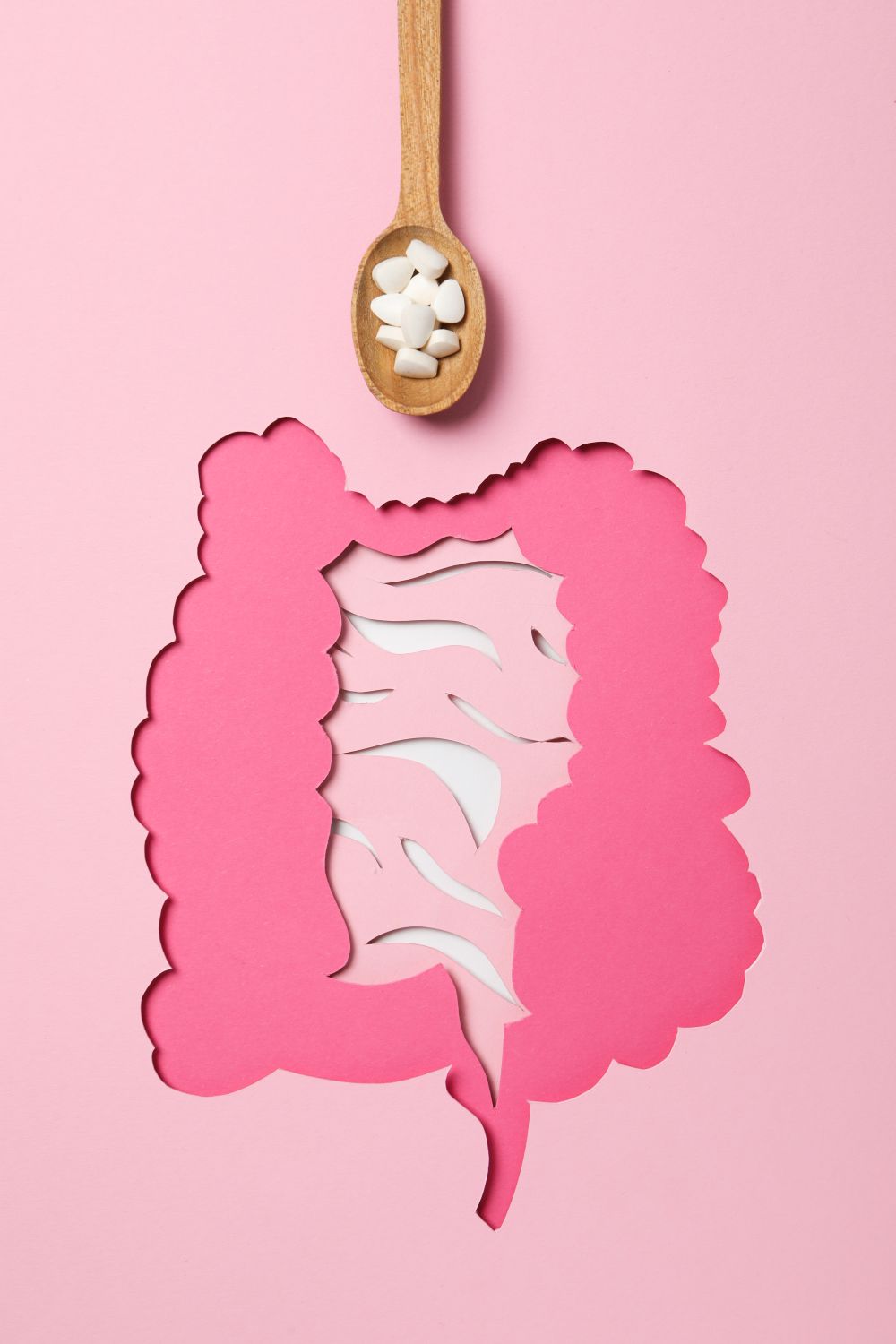
Inside your gut lives an entire ecosystem of bacteria—some friendly, some not so much. When you eat sugar, you’re not just feeding yourself—you’re feeding that ecosystem. The catch? Sugar is like jet fuel for the bad guys.
The more refined sugar you consume, the more harmful bacteria and yeast (like Candida) start to multiply. They push out the good bacteria that normally keep your system balanced. When that balance tips, you might start to notice some unwelcome symptoms like bloating, irregular digestion, or constant cravings.
The wild part? These sugar-loving microbes don’t just sit quietly. They send signals to your brain that make you crave even more sugar. It’s not all in your head—it’s literally in your gut.
The Gut-Craving Connection: It’s Not Just Willpower

If you’ve ever found yourself reaching for something sweet after a long day—even when you’re not that hungry—there might be more to it than habit. Your gut microbes communicate with your brain through the gut-brain axis, influencing your mood, appetite, and yes, your cravings.
Over time, an imbalanced gut can drive you toward sugary foods more often. It’s a loop: sugar feeds the bad microbes, they grow, and then they push you to eat even more sugar. Breaking that cycle starts with noticing it—and slowly changing what you feed your gut.
Sugar’s Role in Leaky Gut and Inflammation

Here’s where things can get more serious. Excess sugar can damage the protective lining of your intestines, leading to something called “leaky gut.” That’s when the tight junctions in your intestinal wall get compromised, allowing undigested food particles, bacteria, and toxins to sneak into your bloodstream.
Your immune system sees those intruders and reacts—sometimes with inflammation that spreads far beyond your belly. This kind of low-grade, chronic inflammation can show up as fatigue, joint pain, skin issues, or just feeling generally “off.”
If you’ve ever felt puffy or foggy after a stretch of eating more sugar than usual, this might be part of the reason why.
Are All Sugars Equal? Not Quite
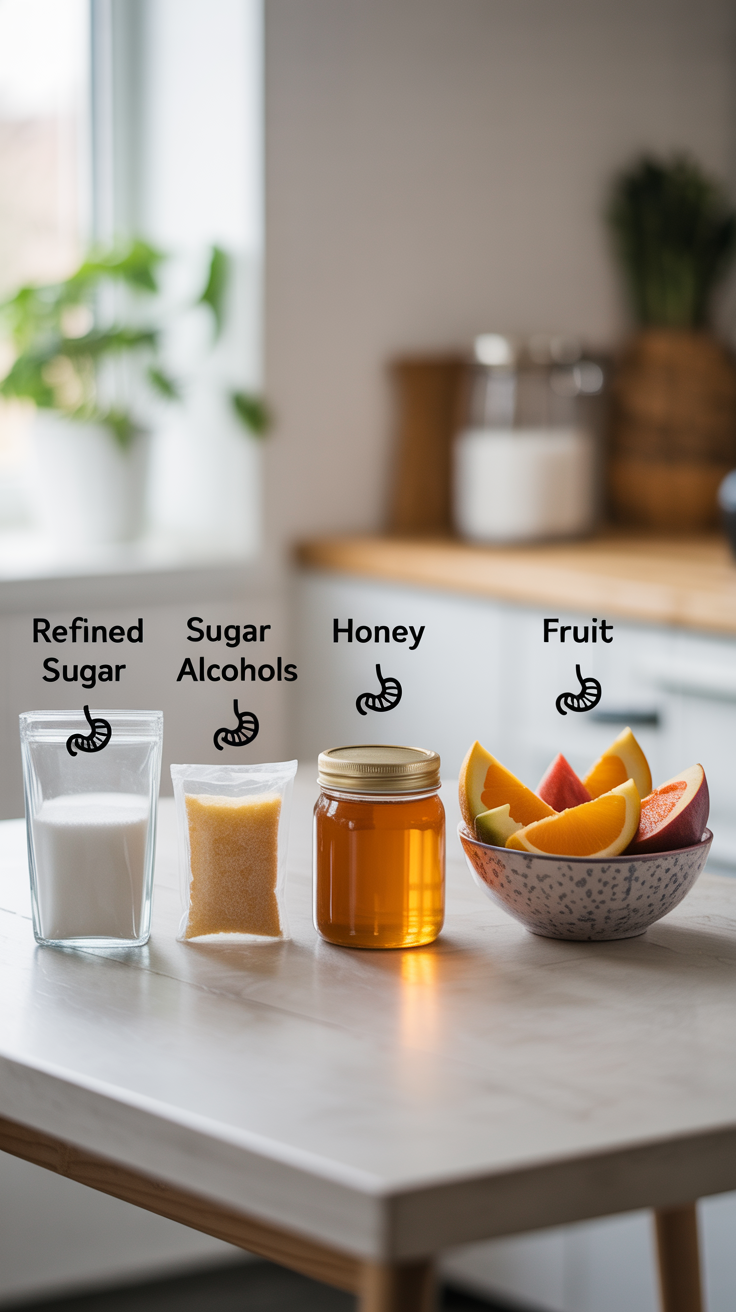
Let’s be clear: your body needs glucose to function. Not all sugar is “bad”—but the form and context matter a lot.
Refined white sugar and high fructose corn syrup are the worst offenders when it comes to feeding bad gut bacteria. Sugar alcohols like xylitol or erythritol, often found in sugar-free snacks, can cause gas or bloating for some people. Natural sweeteners like honey and maple syrup are better tolerated by most, but still need to be used in moderation.
On the other hand, fruit—especially whole fruit—is usually gut-friendly. Thanks to its fiber and antioxidant content, fruit digests slower and provides nutrients that support a healthy microbiome. So if you’re going to reach for something sweet, berries beat brownies almost every time.
Signs Your Gut Might Not Love Sugar

Your gut usually gives clues when sugar has started to cause trouble. Maybe you feel bloated after meals more often than not. Maybe your skin breaks out after a weekend of indulging. Or maybe you just can’t seem to go a day without craving something sweet.
If you feel foggy after eating or notice irregular bowel habits (like swinging between constipation and loose stools), sugar could be a hidden culprit. The key is to pay attention. Even keeping a food and symptom journal for a few days can reveal patterns you didn’t expect.
How to Cut Back Without Losing Your Mind

Here’s the truth: going cold turkey works for some people, but for most of us, it just leads to a late-night sugar raid. A gentler approach tends to stick better.
Try swapping your usual sweetened yogurt for plain with a few berries. Add cinnamon to coffee or oats instead of sugar. Instead of fruit juice, go for whole fruit with a little nut butter. And when you do have dessert, try pairing it with a meal that includes protein and fat. That’ll help slow down sugar absorption and reduce the crash afterward.
Small, consistent changes matter more than dramatic overhauls.
What Sugar Does Beyond the Gut

Because your gut is connected to so many other systems in your body, sugar’s impact doesn’t stop at digestion.
A disrupted gut microbiome can influence how your brain functions. You might notice anxiety, mood swings, or trouble focusing when your gut’s out of balance. Your immune system is also affected—about 70% of it lives in your gut, after all—so a diet high in sugar may make you more prone to colds, flares, or inflammation.
If you’ve ever felt emotionally fried and physically drained after a weekend of sugar overload, now you know why.
Rebuilding: Probiotics, Prebiotics, and a Little Patience
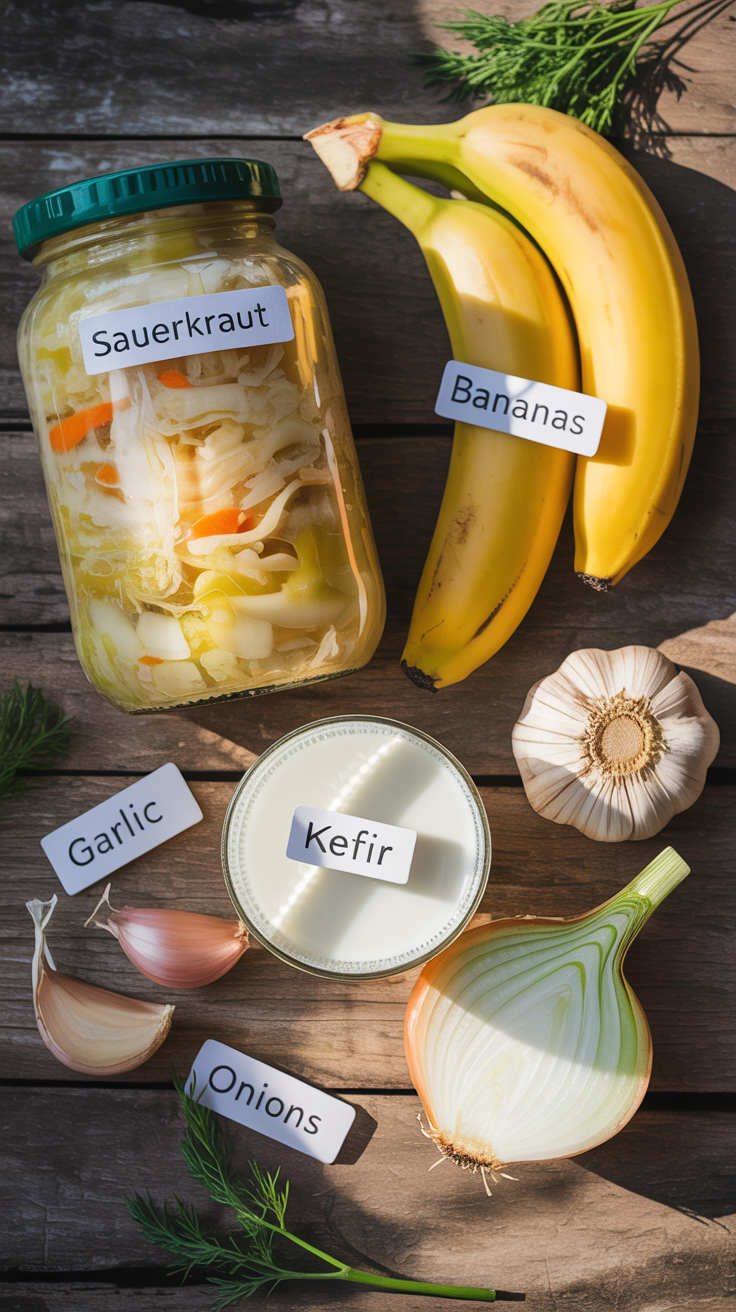
Good news: your gut can bounce back. You don’t need fancy detoxes or harsh cleanses. What you need is consistency, fiber, and fermented foods.
Start by incorporating probiotic-rich foods like sauerkraut, kimchi, or kefir (unsweetened). These help replenish your beneficial bacteria. Add in prebiotic foods like garlic, onions, and bananas—they’re basically fuel for the good microbes.
And remember, go slow. If your gut’s been struggling, sudden fiber overload might make things worse before they get better. Start with small portions and increase gradually.
The Sugar-Autoimmune Link You Should Know About

If you’re dealing with an autoimmune condition—or even suspect you might be—your gut health matters even more. When sugar contributes to a leaky gut, it can trigger or worsen autoimmune responses.
Conditions like Hashimoto’s, rheumatoid arthritis, psoriasis, and celiac disease have all been linked to gut dysfunction. Cutting back on sugar isn’t a cure, but it may help reduce flares and calm down your immune system’s overreactions.
Even if you don’t have a diagnosis, reducing added sugar is a solid step toward preventing long-term inflammation and immune confusion.
The Relationship Between Sugar and Gut Health

At the end of the day, you don’t need to quit sugar forever—but being intentional about it can go a long way. When you understand the link between sugar and gut health, it becomes easier to spot the patterns, trust your gut’s signals, and make choices that support your body’s natural balance.
So go ahead—enjoy your treats once in a while. Just remember your gut is along for the ride. And when you take care of it, it takes care of you right back.

